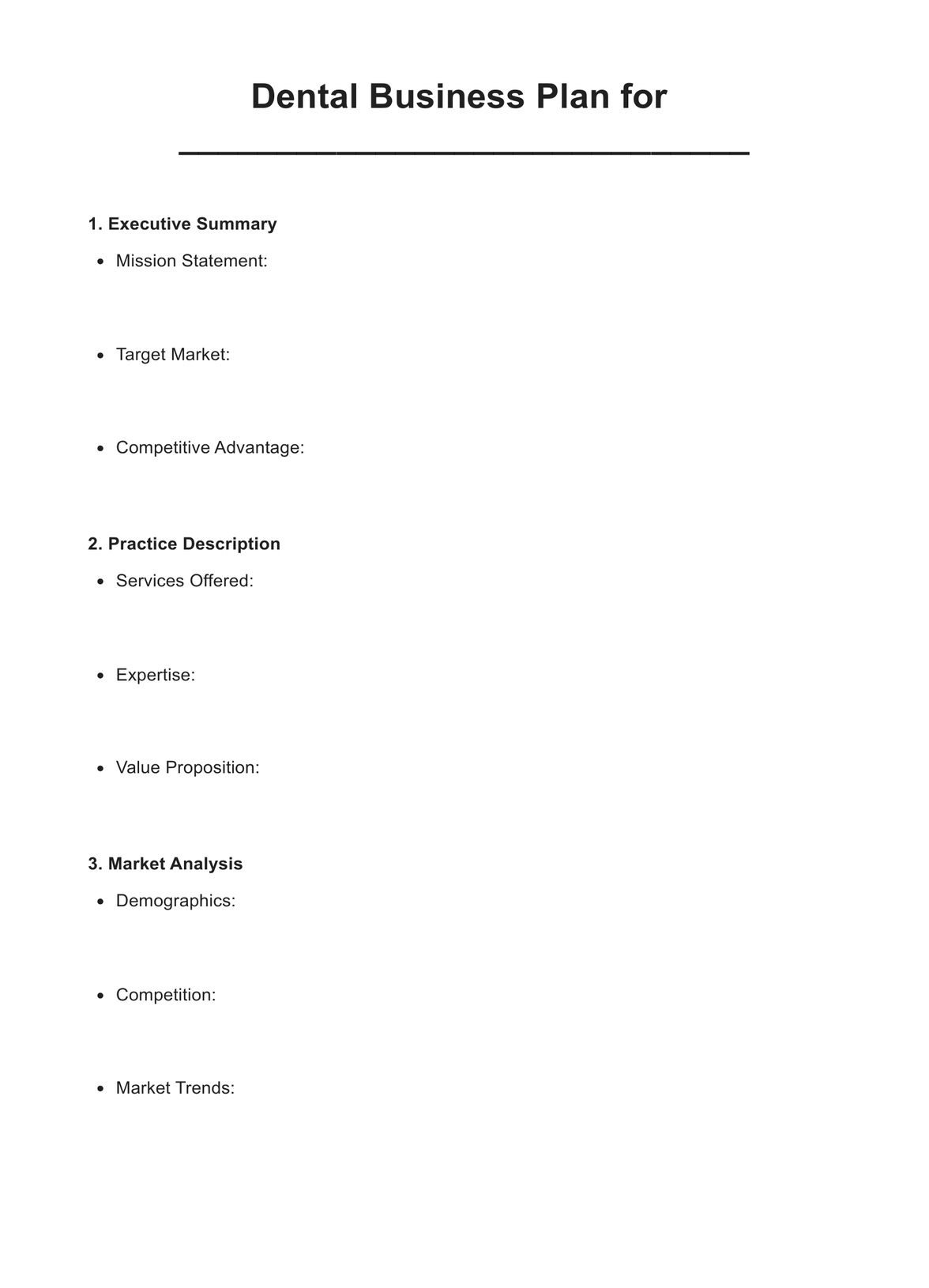Dental Business Plans help dental professionals start, manage, expand, or optimize their practices.

Dental Business Plans
Craft a successful dental practice with a well-structured Dental Business Plan. Navigate growth, secure funding, and make informed decisions.
Dental Business Plans Template
Commonly asked questions
A solid business plan can help with starting or expanding a dental practice, seeking financing, making strategic decisions, and transitioning the practice plans for succession planning.
Dental business plans set clear goals, analyze the market, plan marketing strategies, detail operations, project finances, mitigate risks, secure financing, and monitor progress. They serve as essential roadmaps for dental practitioners, guiding them through practice management, growth, and decision-making.
EHR and practice management software
Get started for free
*No credit card required
Free
$0/usd
Unlimited clients
Telehealth
1GB of storage
Client portal text
Automated billing and online payments











